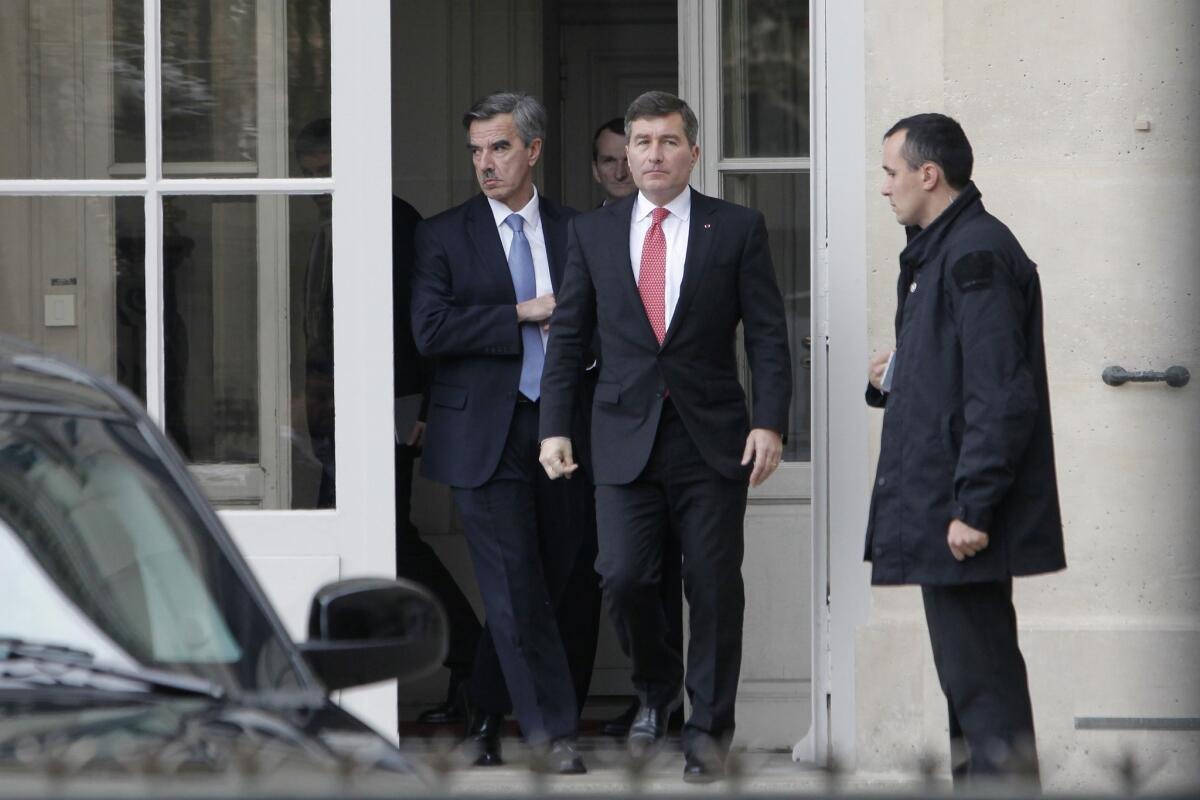NSA, France and spy wars

- Share via
French authorities are shocked — shocked — to learn that the American government is spying on French citizens. The Foreign Ministry summoned the U.S. ambassador to the Quai D’Orsay to inform him that what’s going on is “unacceptable,” and President Francois Hollande claimed to have issued a stern rebuke to President Obama in a phone conversation.
At issue is the allegation — in a Le Monde article by Glenn Greenwald based on documents leaked by former National Security Agency contractor Edward Snowden — that the NSA carried out massive electronic surveillance within France, including collecting some 70.3 million pieces of data on phone calls in a single month. Much remains unclear, but the article suggested that the surveillance may have been aimed not just at suspected terrorists but also at businessmen, politicians and others.
Naturally, the French would be outraged. What government would be happy to learn that a close ally was secretly monitoring its people? Then again, it was revealed in 2010 that France conducts its own espionage activities here on U.S. soil. What’s more, French officials have been aware of the NSA program in France for months. Oh, and also, France’s intelligence agencies have established an electronic surveillance system of their own that monitors their citizens’ phone conversations, emails, texts and even their Twitter posts.
This is the way things work in the shadowy world we’ve been learning about from Snowden’s leaks, a world of hypocrisy, deceit and assertions of shock and indignation, seemingly lifted from the pages of John le Carre. The latest lesson: Friends spy on friends. In recent years it has emerged that the NSA has also been spying in Mexico, Germany and Brazil. And Canada spied on Brazil. And the U.S. spied on the United Nations. And there’s no reason to think it ends there.
All of which raises some important questions: Is there any meaningful difference between bugging your own citizens and bugging someone else’s? (Under American law, the U.S. has more leeway to bug other countries’ citizens than its own.) Is there a difference between a spy stealing secrets from an ally — like Jonathan Pollard, who has spent more than 25 years in prison for stealing American secrets on behalf of Israel — and a surveillance program that targets the secrets of an entire nation? Is privacy a luxury of the past? Should we all assume our conversations are being overheard, if not by our government then by someone else’s?
The White House, embarrassed yet again thanks to Snowden’s revelations, now says it is reviewing the way the U.S. gathers intelligence “so that we properly balance the legitimate security concerns of our citizens and allies with the privacy concerns that all people share.” That’s a good start. There’s a whole lot to consider.
More to Read
A cure for the common opinion
Get thought-provoking perspectives with our weekly newsletter.
You may occasionally receive promotional content from the Los Angeles Times.






